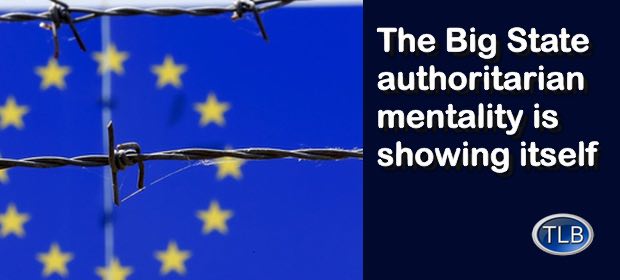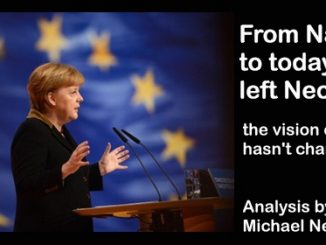
The end of nation states? Germans seeks EU federalization
This proposal would provide Brussels the power to impose policy and implement strategies that might otherwise face serious objection from some other EU members
 FRANK SELLERS
FRANK SELLERS
In this new federalized Europe, smaller countries effectively have no say in policies affecting their peoples. Here, smaller, less influential nations have to send their kids off to war without really getting to have a say in the matter. Additionally, also to take the demographic consequences of such belligerent policies, once again, without the power to efficaciously object.
This idea of scrapping the concept of individual nation states in the European Union was recently advanced by some European parliamentary leaders:
We must have the courage to share sovereignty in the many areas wherein the efforts of individual States are now largely ineffective and doomed to failure: from climate change to energy policies, from financial markets to immigration policies, from tax evasion to the fight against terrorism.
The time has come to move towards a closer political integration: a federal Union of States with a wide range of powers. We know that this concept stirs some controversy, but the reluctance of some cannot impede the action of all. Those who believe in the European ideal must be ready to act, rather than stand by and helplessly observe its gradual decline. Member states who are not yet ready to join this closer union, may do so at a later point.
Former State Secretary for defense and Vice President of the Parliamentary Assembly of the Organization for Security and European Cooperation, Willy Wimmer, says that this proposal is part a movement within the EU to erode individual, national obstacles to larger EU strategies. Wimmer said recently:
“We face critical decisions in the European Union these days. I think there is a major obstacle to the development of the EU because Brussels – mainly France and Germany – want to get rid of the nation states. [Bringing together nation states] had been the founding principle in the European community as we know it since 1956. This principle [is something] that the Polish people, or the Dutch people, the Swedes, the Spanish and also the Germans are not willing to go astray from.”
This proposal would provide Brussels the power to impose policy and implement strategies that might otherwise face serious objection from some other EU member nations. Wimmer mentioned the recognition of Kosovo and the recent migrant quotas imposed on EU member states, as examples.
“They wanted to see Kosovo, the Serbian province, as an independent state. Five countries within the European Union didn’t agree, [including] Spain, Cyprus and others. To overcome this development, they have the idea in Brussels to get rid of the voting in the EU as we have it today,” he explained.
…”Merkel made a decision by herself – not by the German parliament and not by the German law – to open up the German borders,” Wimmer said.
“They want to change the internal laws in Europe just to make it possible for German decisions or French decisions to overrule the independence of countries like Poland, Hungary, the Czech Republic or Slovakia.”
The big boys, like Germany and France, want to have the power to dictate to the rest of Europe how things are gonna go down. Essentially, France and Germany get to call the shots, backed up by their buddies, while the smaller countries, namely those in the East, just have to take whatever their German friends dish out. This move would result in a loss of sovereignty by yielding this simple majority to the West.
***********
Original article
ER recommends other articles by The Duran




